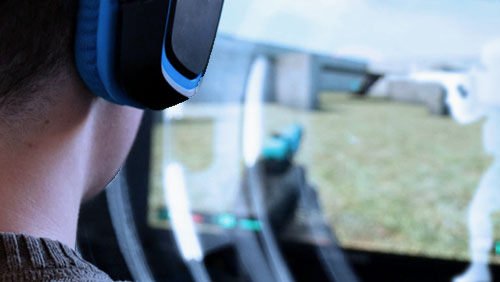Dutch state regulators will now keep a close watch on multiplayer, first-person video game websites as the Netherlands declares skin betting illegal.
 EGaming Review Magazine reported that the Dutch Gambling Authority (KSA), which has recently published a Q&A, pointed out that it will not issue skin betting licenses to video game operators, even if no money changes hands.
EGaming Review Magazine reported that the Dutch Gambling Authority (KSA), which has recently published a Q&A, pointed out that it will not issue skin betting licenses to video game operators, even if no money changes hands.
Despite admitting to have little information on the subject, the KSA has vowed to conduct a relentless crackdown on wagering in-game items as the Dutch law explicitly says that skin betting activities in Netherlands is prohibited.
The KSA, whose hands are tied on the matter, has called on the public to report skins gambling providers.
“These in-game items have very large real money value and can effectively be cashed-out, we see this as a situation where the regulator has no choice to make very clear to game providers what is and is not allowed,” Fintan Costello, founder and managing partner at Amsterdam-based Revenue Engineers, explained to the gambling news magazine. “There is a very large difference between skin gambling (betting in game items) and eSports betting (wagers on sporting events). ESports betting as the industry knows it is betting on which of two teams will win a contest and we believe would be covered under the current proposed legislation so see no impact.”
The Netherlands is the latest European country to declare skins betting illegal. Last week, the UK Gambling Commission published a discussion paper stating its belief that lines between social gaming and gambling products were “blurring,” that some social gaming operators were unknowingly offering gambling games, and “new issues” raised by the burgeoning eSports gambling market.
Weighing in on the matter, experts are unsure whether the Netherlands Remote Gambling framework, which is expected to be introduced in 2017, will include eSports gambling.
According to Dutch gaming lawyer Frank Tolboom, the fate of eSports in Netherlands is still unclear since the ministry is focusing more on regulating products with clear demand.
“Currently they are focusing on the typical gambling products, but they are still working on secondary regulations which ultimately determine licensable product categories. No public statements have been made on eSports betting,” the Dutch lawyer told the news magazine. “In my view, if betting on sports is allowed, then eSports betting could be covered by a sport betting licence.”